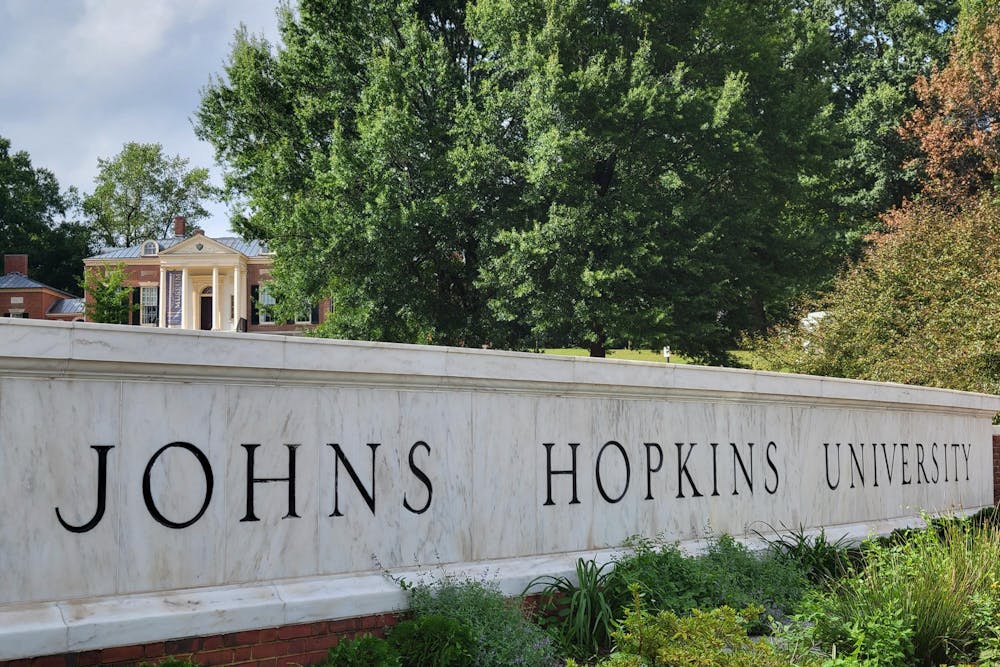On Monday, Sept. 22 U.S. News and World Report released its 2026 national university rankings for undergraduate programs. Hopkins ranked seventh, tied with Duke University, Northwestern University and the University of Pennsylvania.
In the 2025 rankings, Hopkins ranked sixth — marking a one-place drop in the rankings this year. However, the University remains one of the top 10 national universities, ranking higher than four Ivy League institutions. In an email to The News-Letter, freshman Siying Chen shared her reaction to the news, noting that rankings played a role in her decision to enroll at Hopkins.
“When I saw that our rankings dropped to 7th, it didn’t really shock me because it’s reasonable as long as we stay in the top 10,” Chen wrote. “Rankings weren’t a major factor for me when I decided to attend Hopkins, but they definitely played a role when I chose my ED2 school... I knew I wouldn’t regret it if I got in.”
Other students offered a different perspective. Some felt like rankings should not matter, and that Hopkins may be focusing too much on ranks. Senior Lauren Oster explained her thoughts in an email to The News-Letter.
“College rankings, particularly those published by U.S. News, matter very little to me, especially when it comes to the difference between a four-way tie for 6th vs a four-way tie for 7th. The methodology is based on an inherently arbitrary algorithm too heavily influenced by perceived reputation,” Oster said. “I think Hopkins, like most institutions, cares far too much about rankings and should prioritize student, faculty and staff satisfaction over programs aimed at increasing our rank.”
According to their website, U.S. News & World Report determines its ranks through analyzing student outcomes, which includes graduation rate, loan debt and starting salaries; peer assessment regarding school quality; and faculty resources, including student-to-faculty ratio, faculty salaries and research abilities. Standardized testing of applicants and financial resources also accounted for the ranking placements.
In an email to The News-Letter, the University emphasized its focus on long-term goals rather than rankings. However, they noted that rankings provide them with important information to understand current progress and potential areas for improvement.
“Hopkins’ sustained top 10 ranking in the U.S. News reflects ongoing strengths in the academic excellence of our students, the university’s reputation, our resources for students, and the low levels of student debt incurred by our graduates, among many strengths,” a University spokesperson wrote.
Along with its seventh overall rank, Hopkins was ranked first in Biomedical Engineering programs, fourth in Biotechnology, eighth in Psychology, ninth in Undergraduate Research, and more. Notably, Hopkins ranked 12th in Best Value Schools, a ranking which considers academic quality relative to price and the percentage of students receiving financial aid, among other factors.
The University proudly discussed its need-blind admission policy for domestic students and highlighted the increase in the first-generation, low-income student population in an email to The News-Letter.
“Thanks to the historic investment in financial aid from Johns Hopkins alumnus Michael R. Bloomberg in 2018, we were able to commit permanently to need-blind admissions and become a loan-free institution for undergraduates,” the University spokesperson wrote. “Today, nearly a third of our incoming first-year class are Pell Grant recipients or first-generation students—a dramatic increase from just a decade ago, as reflected in this and other rankings.”
Students also reflected on the value of a Hopkins education relative to its cost in their emails to The News-Letter. Chen discussed the financial aid packages at Hopkins and how student opportunities — namely research — justify its cost.
“I believe JHU provides pretty good financial aid packages and is definitely a good value school, especially considering the amount of research opportunities available,” Chen wrote.
Oster also commented on financial aid in her email, noting that, while Hopkins provided her with a sufficient financial aid package, students paying full tuition may not view the University as a value school given its price.
“In my personal experience, I have received better financial aid at Hopkins than I would at many other institutions,” Oster wrote. “For me, this has made it a good value school, though I’m not sure the same could be said if I were paying full tuition.”





